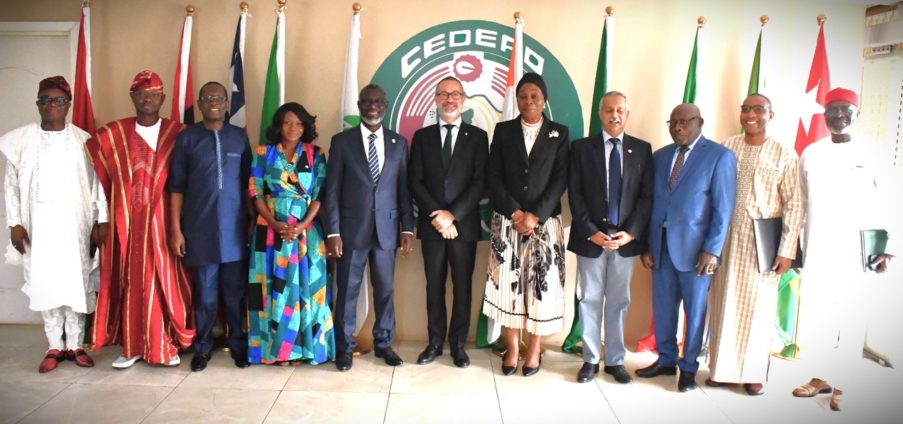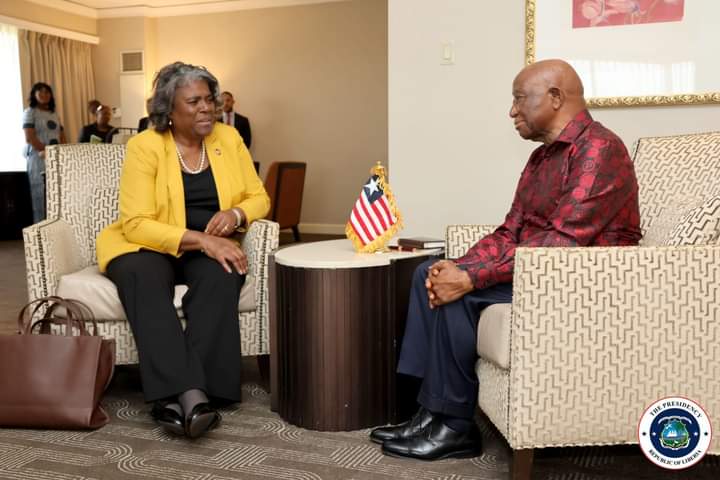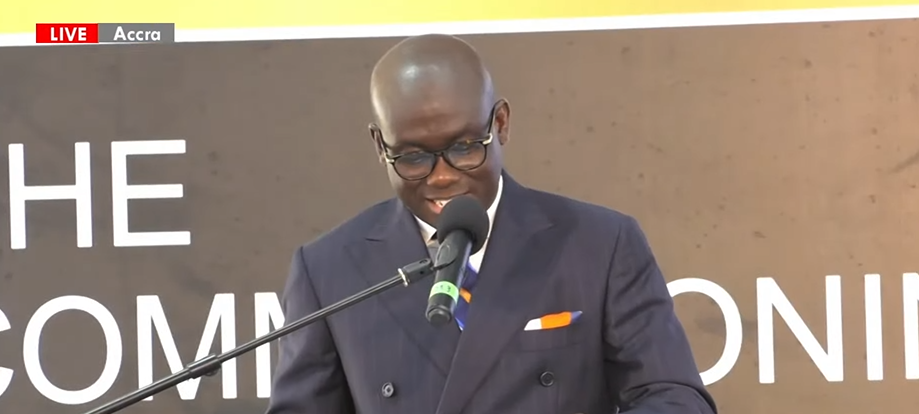










Efforts to establish a War and Economic Court (WECC) in Liberia have gained momentum in recent years. The push for a war crimes court stems from Liberia's long and brutal civil war, which claimed the lives of over 250,000 people and displaced millions more [46409c30]. The lack of prosecution of perpetrators for 21 years has largely been a result of a lack of political will [5bc763bc]. The 2003 peace agreement signed in Accra that helped bring an end to the war gave political power to people who were fighting, contributing to the delay in prosecuting war criminals [5bc763bc]. However, President Joseph Boakai has signed an order promising the establishment of a war crimes court, signaling a significant step forward for accountability and justice in the country [5bc763bc] [46409c30]. The establishment of an office is Liberia's most concrete step thus far towards domestic prosecution of its war criminals [5bc763bc].
The Liberian House of Representatives has passed a resolution in support of the WECC, but it still needs approval from the Liberian Senate before it can be implemented [46409c30]. US Ambassador-at-Large for Global Criminal Justice Beth van Schaack has praised the Joseph Boakai administration for its efforts to establish the WECC, emphasizing the importance of accountability for crimes and stating that impunity undermines the rule of law and contributes to corruption and lawlessness [7323d2bc].
A Liberian group called GUJAN is urging the government to prioritize the establishment of a war and economic crimes court in Liberia. The group cautions the government to treat calls for the court with utmost seriousness and not as a political move. GUJAN thanks President Joseph Nyuma Boakai and members of the 55th Legislature for taking steps to end the culture of impunity in Liberia, but stresses the need for more practical actions. The group notes that since President Boakai signed Executive Order 0031 to establish the Office for War and Economic Crimes Court, the office has yet to be physically established with named personnel [7f66367a].
The Tom Lantos Human Rights Commission in the United States is conducting a hearing on the establishment of the court, examining the legacy of Liberia's civil wars and steps for the office. Witnesses at the hearing include Dr. Alan White, Yahsyndi Martin-Kpeyei, Adama Kiatamba Dempster, and Elise Keppler. The hearing will be hybrid, with members of Congress participating in person and witnesses participating in person or remotely. The public and media can attend in person or view the hearing via live webcast [7f66367a].
The establishment of a war crimes court in Liberia is seen as a crucial step towards accountability and justice for the victims of the country's civil war. It would help hold perpetrators of war crimes accountable, deter future atrocities, and promote healing and reconciliation in Liberia [46409c30]. However, there are challenges and implications that need to be carefully considered. The jurisdiction of the court, reparation for victims, and the logistical and financial implications of hosting the court are all important factors to address [7684e09d]. It is also crucial to ensure the protection of witnesses and the availability of adequate detention facilities [7684e09d]. The establishment of a war crimes court requires a meticulous process and the commitment of the Liberian government and international partners to ensure its success [7684e09d].
In addition to the establishment of a war crimes court in Liberia, the Parliament of the Economic Community of West African States (ECOWAS) has called for the implementation and enforcement of judgments by the ECOWAS Court of Justice. The Fourth Deputy Speaker of the ECOWAS Parliament, Honourable Billay Tunkara, made this appeal at the ECOWAS Court 2024 International Conference in Freetown, Sierra Leone. Tunkara expressed concern over the failure of some member states to comply with the court's judgments and stressed the importance of respecting the rulings of the court. He urged all member states to uphold the rule of law and called on parliamentarians to advocate for the enforcement and implementation of ECOWAS Court judgments. Tunkara also voiced support for the establishment of an appellate chamber of the ECOWAS Court to allow parties to exercise their right of appeal [68d87765].
The process of electing a substantive speaker of the ECOWAS Parliament is currently underway, with the first Deputy Speaker, Jibrin Barau, serving as the acting Speaker. The 2024 second extraordinary session of the ECOWAS Parliament is scheduled to be held from 20 to 25 May 2024 in Kano, Nigeria [68d87765].
The President of the Economic Community of West African States Court of Justice, Justice Edward Asante, has expressed concern over the high administrative and operational costs burdening the court. Approximately 80% of the court's budget is consumed by administrative and operational expenses, leaving limited funds for other essential activities. Justice Asante called for strategic planning to create a viable budget and urged against overburdening the already strained resources of the court. He made these remarks during the annual administrative and budget retreat attended by the vice president, judges, directors, and relevant staff of the court [76e5d997].
Justice Edward Amoako Asante, the President of the ECOWAS Community Court of Justice, welcomed the newly invested Speaker of the ECOWAS Parliament, H.E. Memounatou Ibrahima, during a courtesy visit to the Court. President Asante highlighted the enduring partnership between the Court and the Parliament and emphasized the importance of continued collaboration, particularly in the exchange of resources and expertise. The Speaker expressed her gratitude and reaffirmed the Parliament's commitment to this collaborative spirit. Both leaders expressed optimism for the future of ECOWAS and the vital role their institutions play in fostering unity, promoting justice, and ensuring the prosperity of the West African region [dfb015f5].
President Akufo-Addo of Ghana has highlighted the importance of upholding the rule of law with the completion of The Law House, a state-of-the-art facility that will house the Office of the Attorney General and the Ministry of Justice. The Law House represents the government's commitment to addressing the office accommodation problem and providing a conducive environment for the efficient administration of the law in the country. President Akufo-Addo also mentioned the digitalization and modernization of the legal and judicial systems, including the introduction of electronic filing systems, which have expedited case handling and enhanced transparency and accountability within the legal system [2f691fb0].
The Attorney-General and Minister of Justice, Godfred Yeboah Dame, emphasized the importance of a fully functional digitalized environment at the newly commissioned Law House in Accra. He plans to add a modern law library and ensure the complete electronic management of all records. The 10-storey office complex will house State Attorneys at the office of the Attorney General and Ministry of Justice. The Law House project began in 2001 and was completed in January 2023. The Chief Justice, Gertrude Torkornoo, urged the government to enhance and expand facilities nationwide to improve justice delivery [31154812] [2f691fb0].
The ECOWAS Court of Justice and the International Committee of the Red Cross (ICRC) signed a Memorandum of Understanding (MoU) on July 12, 2024, to strengthen their collaboration in international humanitarian law and international human rights law. The MoU sets the stage for training sessions, roundtable discussions, and joint conferences to enhance knowledge and expertise in areas of mutual interest. The President of the ECOWAS Court of Justice, Justice Edward Amoako Asante, expressed his delight in attending the signing ceremony and highlighted the valuable training and support provided by the ICRC in International Humanitarian Law. The Head of Delegation for the ICRC, Yann Bonzon, emphasized the historic and fruitful relationship between the ICRC and ECOWAS, and the vital role of the ECOWAS Court in upholding International Humanitarian Law (IHL) and International Human Rights Law (IHRL). The MoU aims to leverage expertise, facilitate access to expert opinions, publications, and training, and enhance the Court's expertise in applying these laws and addressing humanitarian challenges in West Africa [fadc01c9].